NEWS
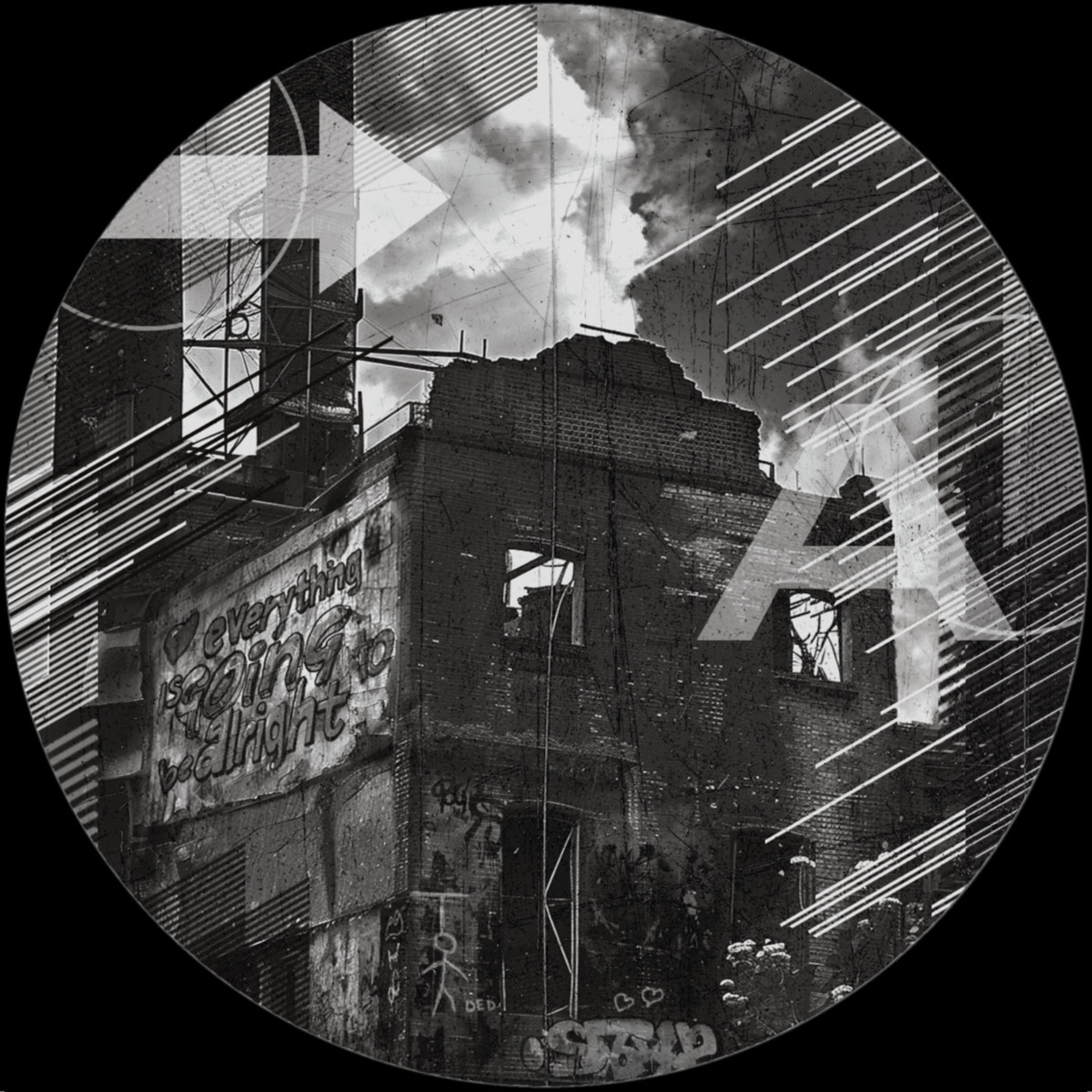
NEWS: In this section you find all the new releases - whether music or print - as they come out and/or are being listed in the shop.
This can include major re-stocks as well as older titles and second hand records or books. New titles are being added on a near-daily basis.
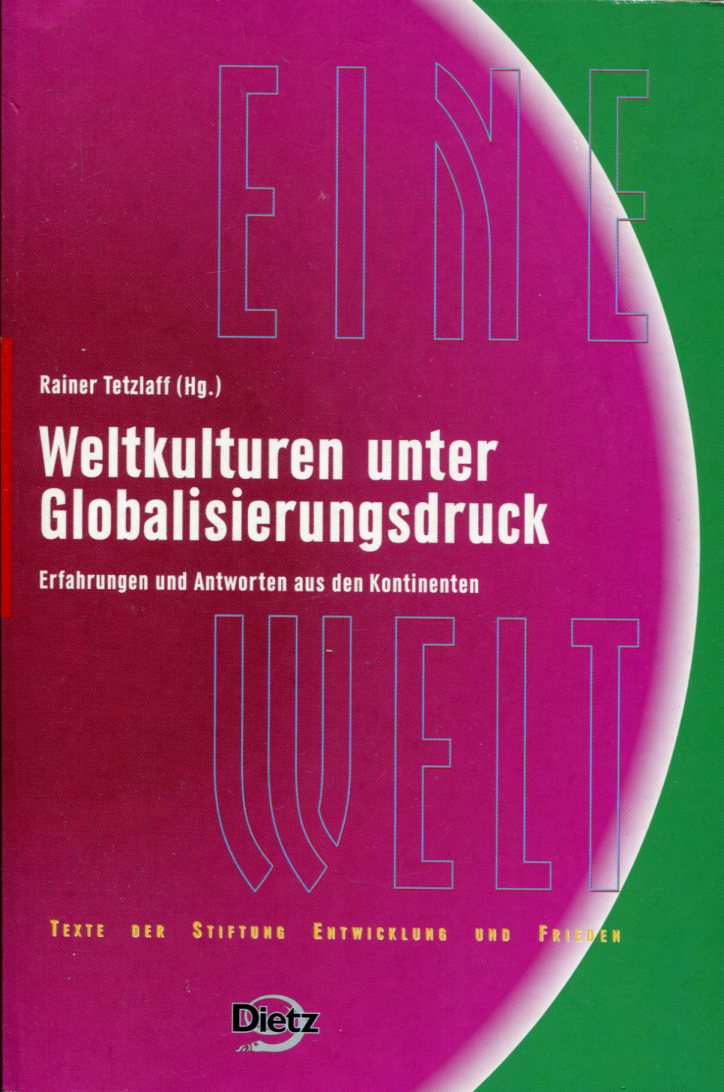
Rainer Tetzlaff (Hg.): Weltkulturen unter Globalisierungsdruck Guter bis sehr guter Zustand
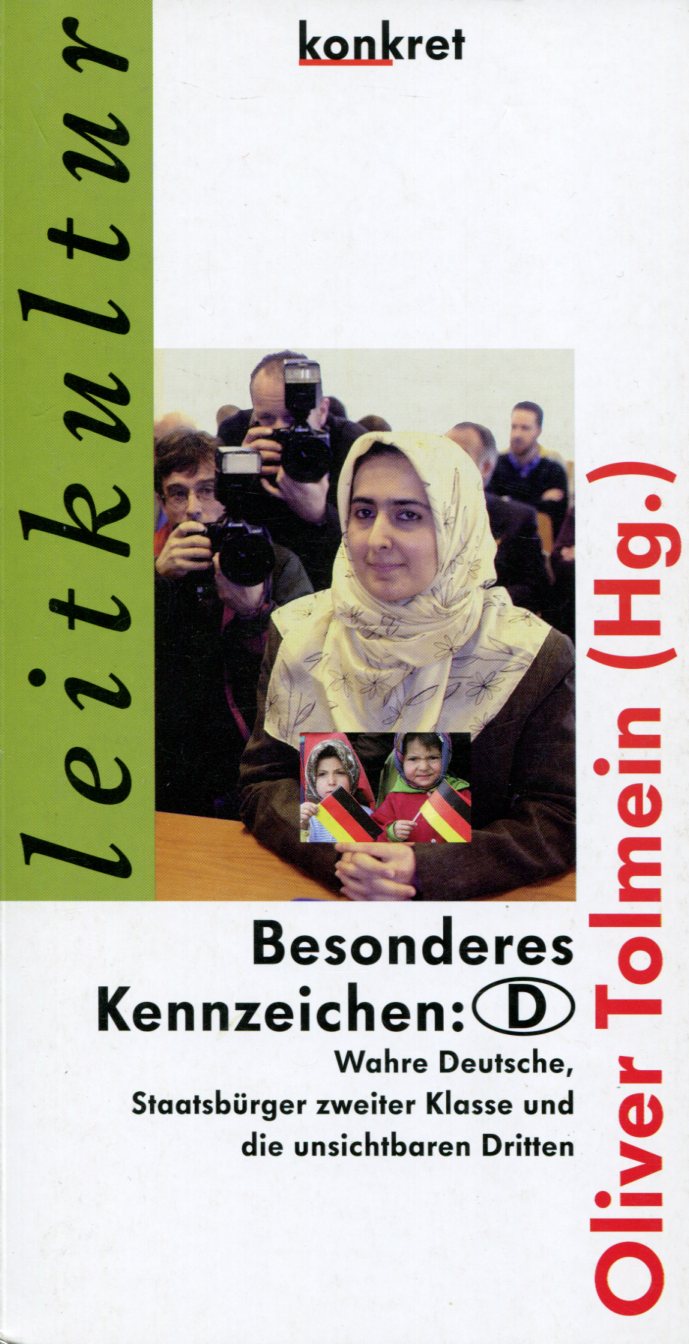
Oliver Tolmein (Hg.): Besonderes Kennzeichen D Sehr guter Zustand.
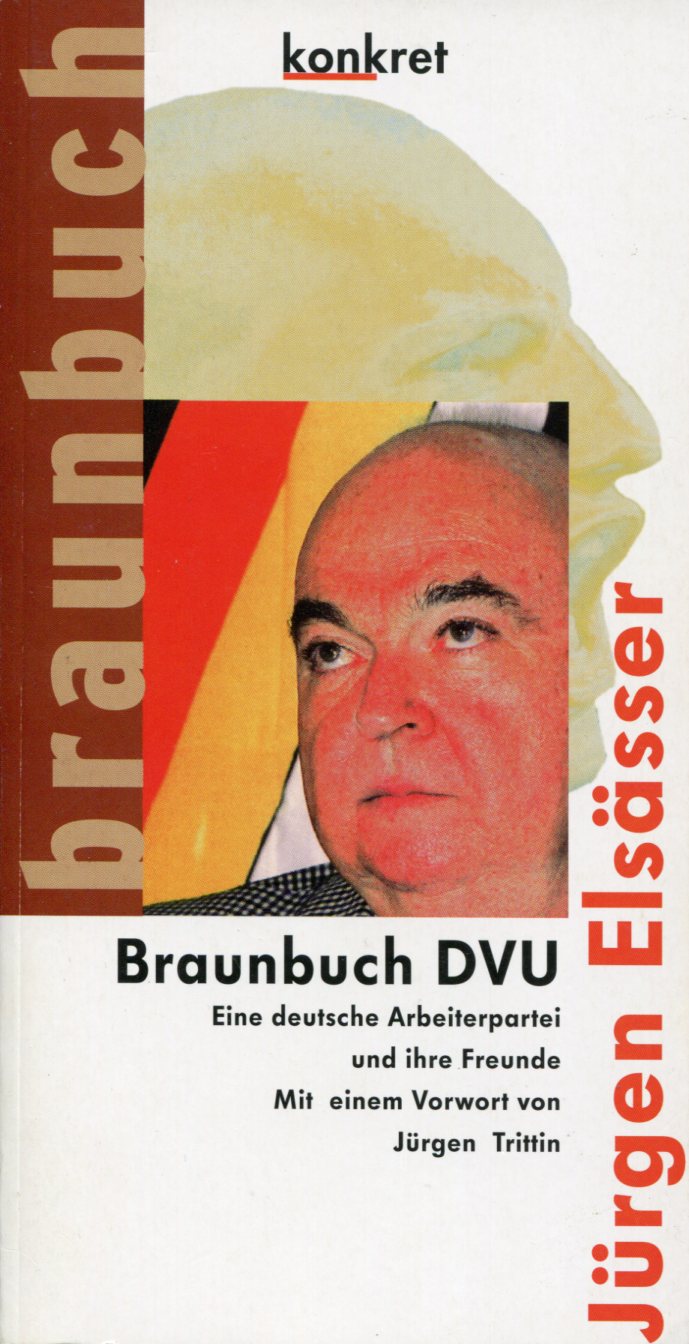
Jürgen Elsässer: Braunbuch DVU Sehr guter Zustand

Georg Lukács’ „Geschichte und Klassenbewusstsein“ ist ein Werk mit einer geradezu überzeitlichen Wirkung. Als Reaktion auf das Scheitern der deterministisch antizipierten proletarischen Weltrevolution nach dem Ersten Weltkrieg erschien diese Sammlung von Essays und Aufsätzen erstmals 1923.Das Buch war aufgrund seiner scharfen Kritik am ‚orthodoxen Marxismus’ für die Herausbildung des sogenannten westlichen Marxismus von zentraler Bedeutung, auch wenn Lukács es nach Kritik und Anfeindungen seitens des parteioffiziellen Marxismus widerrief. Eine emanzipatorische Linke rezipierte Lukács immer wieder, besonders wurde er 1968 wieder ins Gedächtnis gerufen. Die von ihm verwendeten Begriffe von Dialektik, Verdinglichung, Entfremdung und Totalität bieten Gelegenheit, die Notwendigkeit der Abschaffung der bestehenden Verhältnisse mit philosophisch geschliffener theoretischer Schärfe zu begründen.Nach dem katastrophischen 20. Jahrhundert stellt dieses Buch die Frage nach der Aktualität von „Geschichte und Klassenbewusstsein“. Die Relevanz der genannten Begriffe wird hier betont, statt – wie im postmodernen Diskurs – kleingeredet. Die Beiträge des Bandes bewegen sich zwischen den Spannungspolen von Bewusstsein und Ideologie sowie Historizität und Geschichte.Mit Beiträgen von Àgnes Heller, Detlev Claussen, Rüdiger Dannemann, Frank Engster, Patrick Eiden-Offe, Roger Behrens, Stefan Müller, Johannes Rein, Veith Selk und Bastian Bredtmann, herausgegeben von Hanno Plass. Inhalt: Ágnes Heller: Vorwort Frank Engster: Lukács’ Existenzialismus oder Die Selbstreflexion der Produktivkraft durch das Selbstbewusstsein der Ware Arbeitskraft Patrick Eiden-Offe: Kampf-Form. Versuch über die Form der Partei bei Georg Lukács Rüdiger Dannemann: Das unabgeschlossene Projekt der Verdinglichungskritik – Verdinglichung als Leitbegriff der Gegenwartsdiagnostik Detlev Claussen: Geschichte ohne Klassenbewusstsein. Georg Lukács’ kurzes 20. Jahrhundert Roger Behrens: Konkrete Totalität Veith Selk: Demokratie und Verdinglichung Stefan Müller, Johannes Rhein: Totalität, Vermittlung und Unmittelbarkeit. Kategorien materialistischer Dialektik bei Georg Lukács und Theodor W. Adorno Bastian Bredtmann: Westlicher Marxismus und kritische Theorie Hanno Plass: Nachwort Dank Beitragende

Was bleibt von den „Autonomen Nationalisten“? HoGeSa und EDL David Irvings Einreiseverbot aufgehoben HoGeSa im Wandel Hammerskins im Hintergrund Bodo Pfalzgraf: eine (r)echte Karriere? Die Otto-von-Bismarck-Stiftung Neonazis morden — auch in Baden-Württemberg „Draußen im Outback, da muss man halt Realpolitik machen...“ Guter Stadtrat ist teuer Die Mordserie der Neonazi-Gruppe BORN „Niemand kann sich in Belarus der staatlichen Kontrolle entziehen.“ Interview mit Showan Der außerparlamentarische Lückenfüller Der PEGIDA-Effekt PEGIDA in Dresden PEGIDA Review Sächsischer CDU-Politiker gegen Antirassist_innen 70 Jahre Auschwitz Befreiung „... weil ihre Kultur so ist“ Sumpfwandertag „Nicht nichts machen“ Rechtsstaat auf sächsisch Islam + Faschismus. Die Orientierungslosigkeit der unabhängigen Linken Antifa under my umbrella Antifa heißt: Weitermachen! Jenseits von Ferguson? Der Krieg der EU gegen Flüchtlinge und MigrantInnen in Afrika Antimuslimischer Rassismus
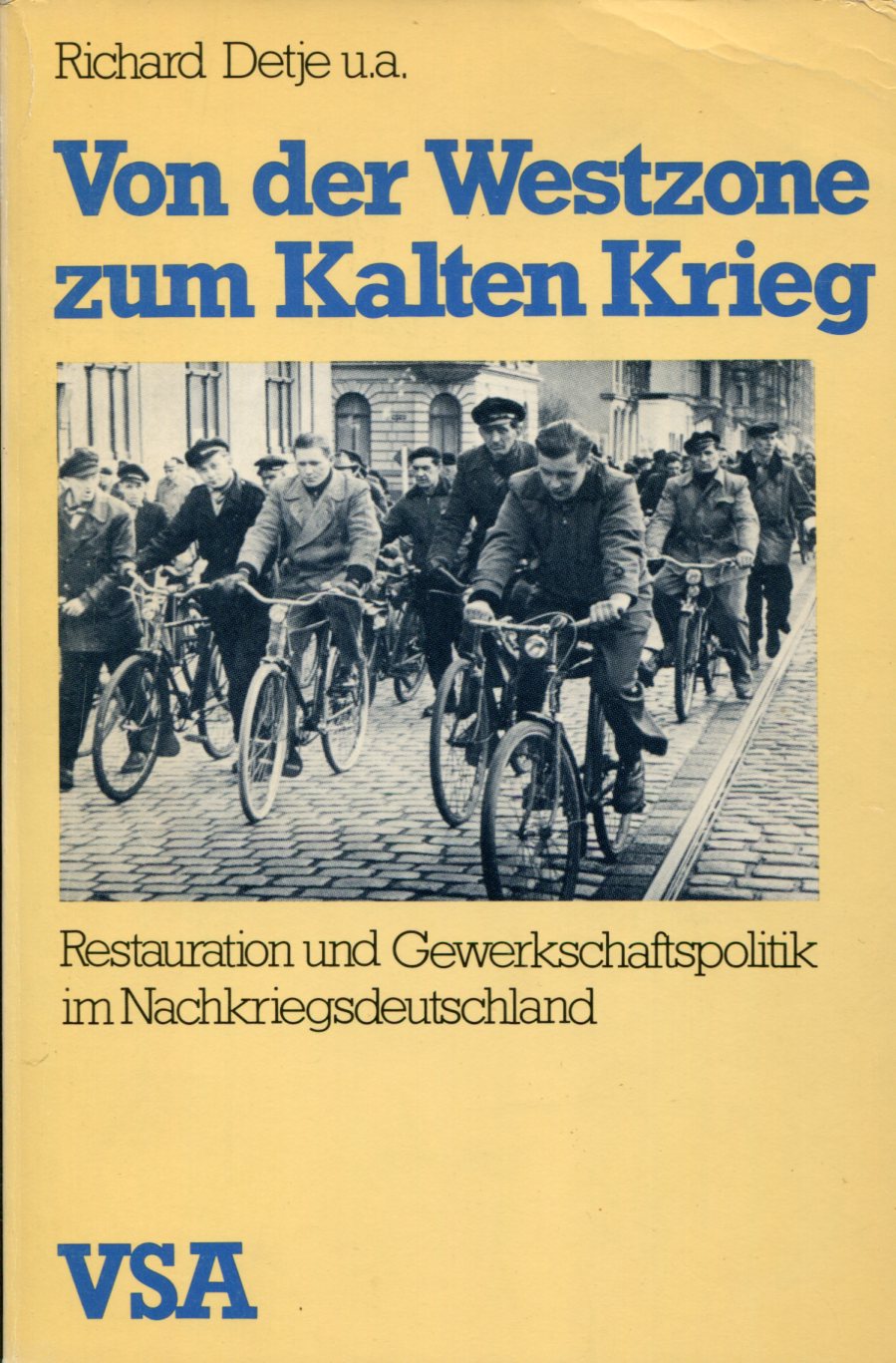
Richard Detje u.a.: Von der Westzone zum Kalten Krieg Gut

Peter Schneider: Atempause guter Zustand.
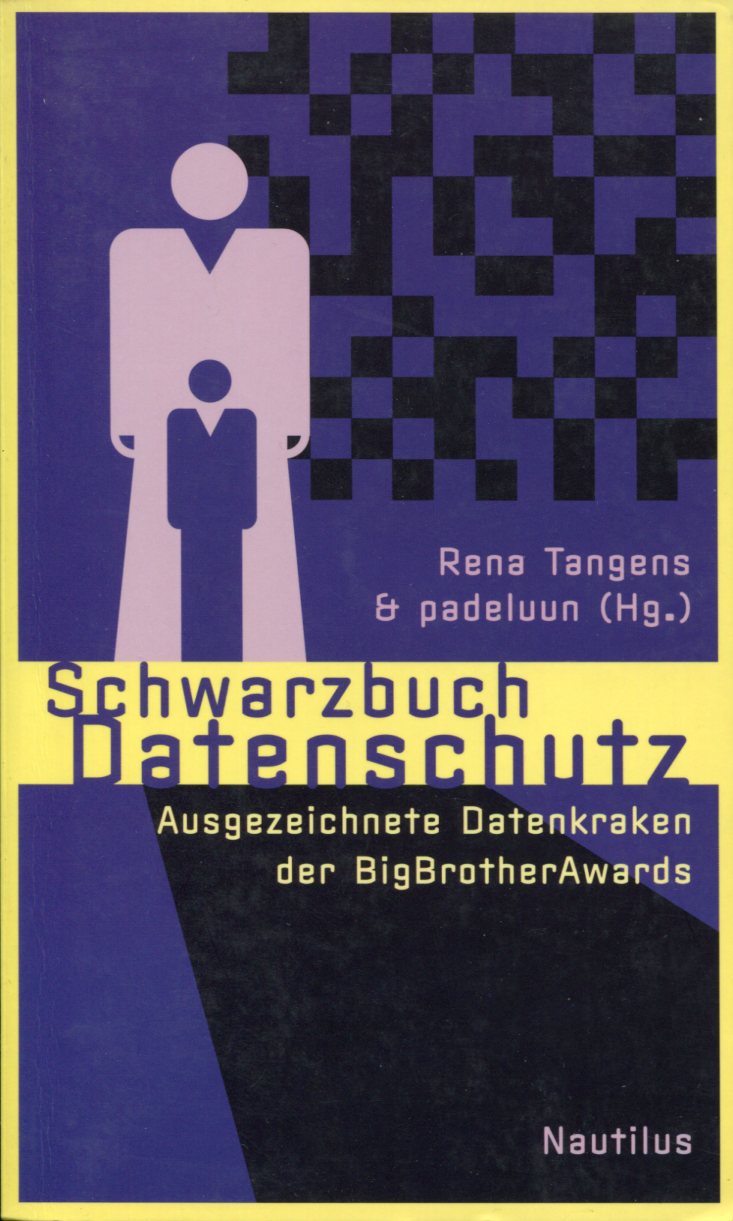
Rena Tangens & padeluun (Hg.): Schwarzbuch Datenschutz Sehr guter Zustand

Marco Micheli: The Mikmak Experience on Idroscalo Dischi, released in 2015 <iframe width="560" height="315" src="https://www.youtube.com/embed/T9w9FF8migI" title="YouTube video player" frameborder="0" allow="accelerometer; autoplay; clipboard-write; encrypted-media; gyroscope; picture-in-picture" allowfullscreen></iframe>

Max Bense: nur glas ist wie glas Sehr guter Zustand.

Ulrich Bräker: Lebensgeschichte und Natürliche Ebentheuer des Armen Mannes im Tockenburg Im Schuber, Zustand gut bis sehr gut
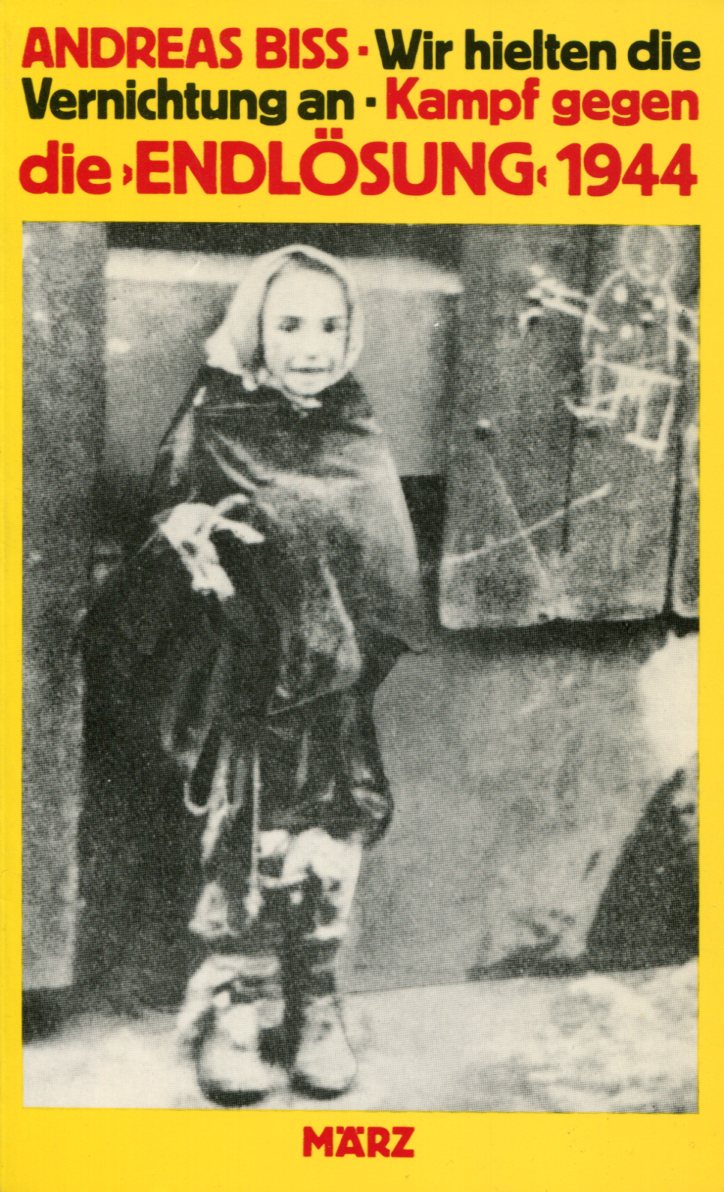
Andreas Biss: Wir hielten die Vernichtung an. Kampf gegen die "Endlösung" 1944 Sehr guter Zustand.

Dieter Schneider/Rudolf Kuda: Arbeiterräte in der Novemberrevolution Guter Zustand
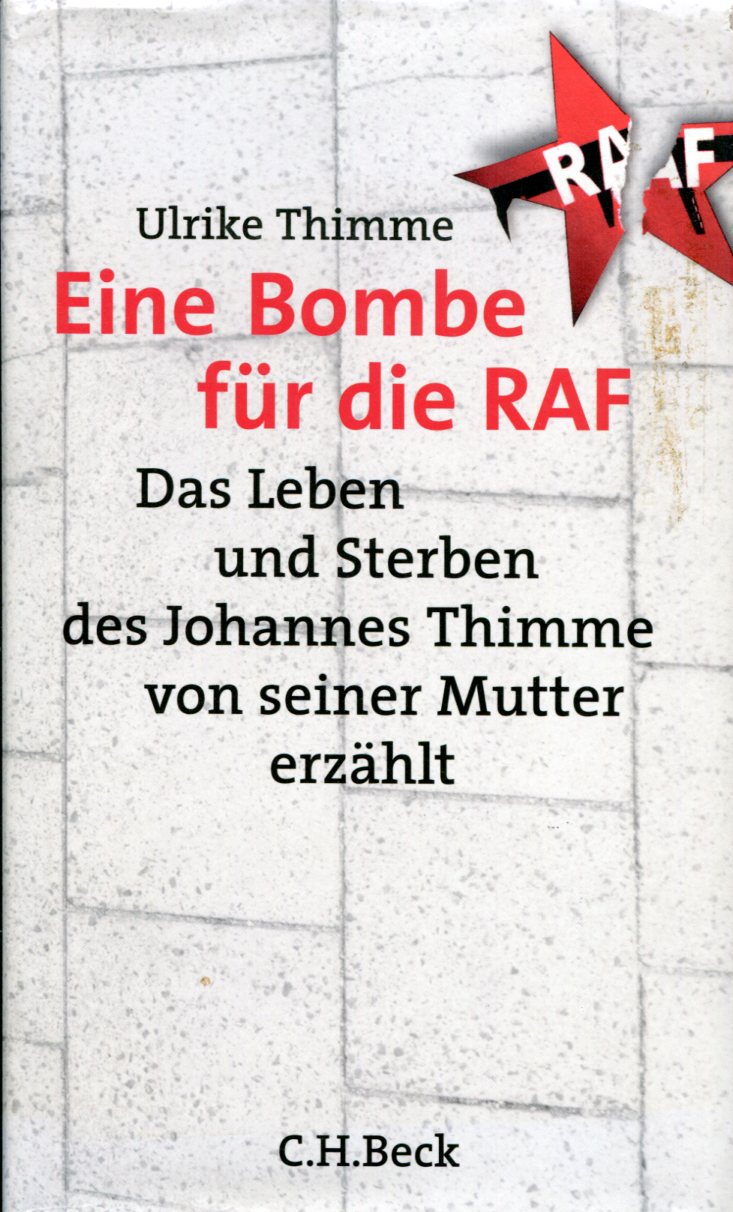
Ulrike Thimme: Eine Bombe für die RAF - Das Leben und Sterben des Johannes Thimme - von seiner Mutter erzählt leichte gebrauchsspuren

David G. Cooper/Ronald D. Laing: Vernunft und Gewalt Guter Zustand.
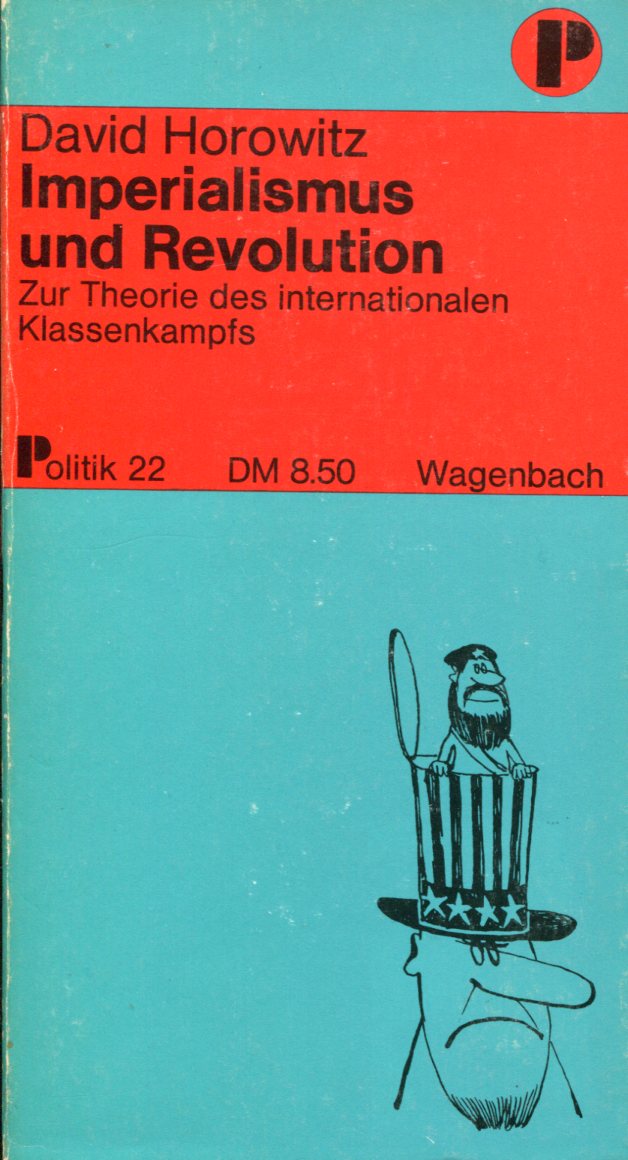
David Horowitz: Imperialismus und Revolution Originalausgabe von 1970 als Rotbuch 22, allerdings mit dem später hinzugefügten Schutzumschlag der Reihe "Politik" des Wagenbach Verlags. Das Papier ist relativ stark gebräunt.
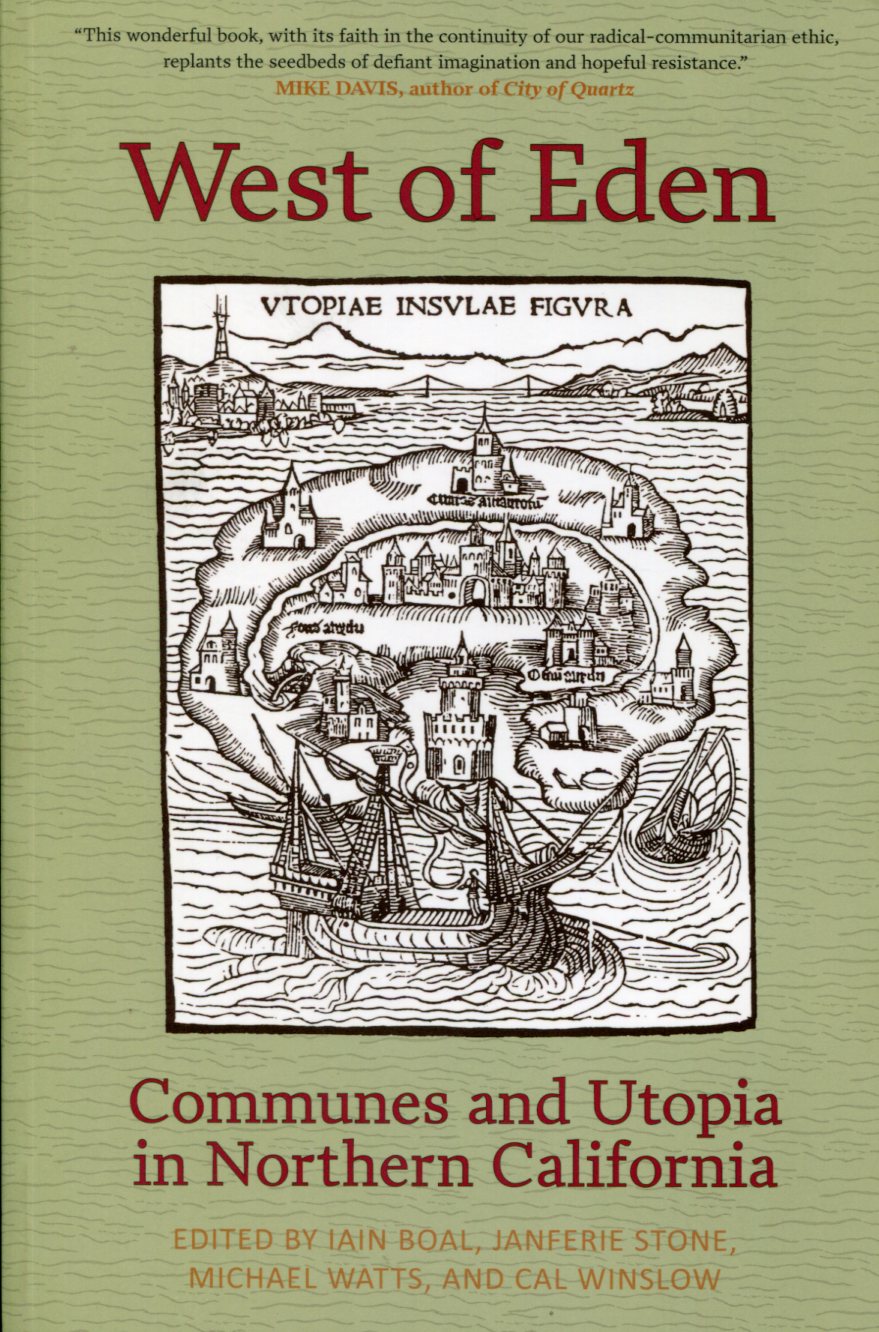
In the shadow of the Vietnam War, a significant part of an entire generation refused their assigned roles in the American century. Some took their revolutionary politics to the streets, others decided simply to turn away, seeking to build another world together, outside the state and the market. West of Eden charts the remarkable flowering of communalism in the 60s and 70s, fueled by a radical rejection of the Cold War corporate deal, utopian visions of a peaceful green planet, the new technologies of sound and light, and the ancient arts of ecstatic release. The book focuses on the San Francisco Bay Area and its hinterlands, which have long been creative spaces for social experiment. Haight-Ashbury's gift economy—its free clinic, concerts, and street theatre—and Berkeley's liberated zones—Sproul Plaza, Telegraph Avenue, and People's Park—were embedded in a wider network of producer and consumer co-ops, food conspiracies, and collective schemes. Using memoir and flashbacks, oral history and archival sources, West of Eden explores the deep historical roots and the enduring, though often disavowed, legacies of the extraordinary pulse of radical energies that generated forms of collective life beyond the nuclear family and the world of private consumption, including the contradictions evident in such figures as the guru/predator or the hippie/entrepreneur. There are vivid portraits of life on the rural communes of Mendocino and Sonoma, and essays on the Black Panther communal households in Oakland, the latter-day Diggers of San Francisco, the Native American occupation of Alcatraz, the pioneers of live/work space for artists, and the Bucky dome as the iconic architectural form of the sixties. Due to the prevailing amnesia—partly imposed by official narratives, partly self-imposed in the aftermath of defeat—West of Eden is not only a necessary act of reclamation, helping to record the unwritten stories of the motley generation of communards and antinomians now passing, but is also intended as an offering to the coming generation who will find here, in the rubble of the twentieth century, a past they can use—indeed one they will need—in the passage from the privations of commodity capitalism to an ample life in common. Praise: "As a gray army of undertakers gather in Sacramento to bury California's great dreams of equality and justice, this wonderful book, with its faith in the continuity of our state's radical-communitarian ethic, replants the seedbeds of defiant imagination and hopeful resistance." —Mike Davis, author of City of Quartz and Magical Urbanism “Utopias—we can't live without them, nor within them, for long. In West of Eden we see California, an earthly utopia, and the Sixties, a utopian moment, in full flower. Brave souls creating a heavenly host of communal spaces on the edge of America, hoping to break free of a world of capital, sexism, oligarchy, race. An amazing place and time that, for all its failures, changed the world—and which finally gets its due in this marvelous collection.” —Richard Walker, UC Berkeley, author of The Country in The City “There are a lot of versions of the sixties, and this is one that isn't stale or familiar, a book by a lot of good writers and original thinkers about how some much older ideas about the commons and the community were tinkered with, enlarged upon, turned into experiments that sometimes succeeded, sometimes failed, but left legacies that mattered. It's also a book about California's tendency to go experimental, idealistic, and eclectic, a fit successor to the classic California's Utopian Colonies that looked at some of the great nineteenth-century experiments.” —Rebecca Solnit, author of Storming the Gates of Paradise “The counterculture—from the North Beach Parnassus to the underground press—and ‘the Movement’—from Marxists to anarchists—all of it depended on a magnificent base, and here it is described, magnificently: the Oakland breakfast program, the Alcatraz occupation, the Mime troupe, and pot farms, the communes, the collectives, the co-ops of California during the 1960s. On the lam? A bad trip? Burnt out? Cracking up? AWOL? Dropping out? Requiring metamorphosis? These could provide rural and urban alternatives to Cold War, patriarchy, speed-up, or death in the jungle. With roots in previous decades of struggle by trade unions, ethnic enclaves, religious breakaways, and nineteenth-century dreams, and with branches in the lore of our own contemporary foodways, child-rearing practices, decision-making and meeting protocols, sexual politics, and DIY culture, the California communards cleared the path. Both veterans and young folk, grey hairs and newbies will find beautiful memoire, authentic experience, and brilliant analysis in these pages West of Eden." —Peter Linebaugh, author of The Magna Carta ManifestoAbout the Editors: Iain Boal is an Irish social historian of science and technics, affiliated with the University of California, Berkeley and Birkbeck College, London. He is associated with the Retort group, and is one of the co-authors of Retort's Afflicted Power: Capital and Spectacle in a New Age of War(Verso). He co-edited with James Brook Resisting the Virtual Life: The Culture and Politics of Information (City Lights), and is author of The Green Machine (Notting Hill Editions), a brief planetary history of the bicycle. Janferie Stone was a sojourner in two communes on the Mendocino Coast in the early 1970s. She has taught Native American Studies and anthropology at many levels of the California education system. Her essays have been published in Sustainable Feminisms: Advances in Gender Research, and From Rigor to Vigor: Transformations in the Field. Michael Watts is professor of Geography and Chair of Development Studies at the University of California, Berkeley where he has taught for over thirty years. A Guggenheim Fellow in 2003, he served as the Director of the Institute of International Studies from 1994–2004. His research focuses on food and energy security, rural development, and land reform in Africa, South Asia, and Vietnam. Cal Winslow is a social historian, educated at Antioch College and Warwick University. He is co-author with Edward Thompson, Peter Linebaugh, and others of Albion’s Fatal Tree. He is author of Labor’s Civil War in California (PM Press) and co-editor of Rebel Rank and File. He is the Director of the Mendocino Institute and associated with the Retort group. He lives with his family near Caspar on the Mendocino coast. Product Details:Editor: Iain Boal, Janferie Stone, Michael Watts, and Cal WinslowPublisher: PM PressISBN: 978-1-60486-427-4Published: March 2012Format: PaperbackSize: 9 by 6Page count: 320 PagesSubjects: History-California, Politics
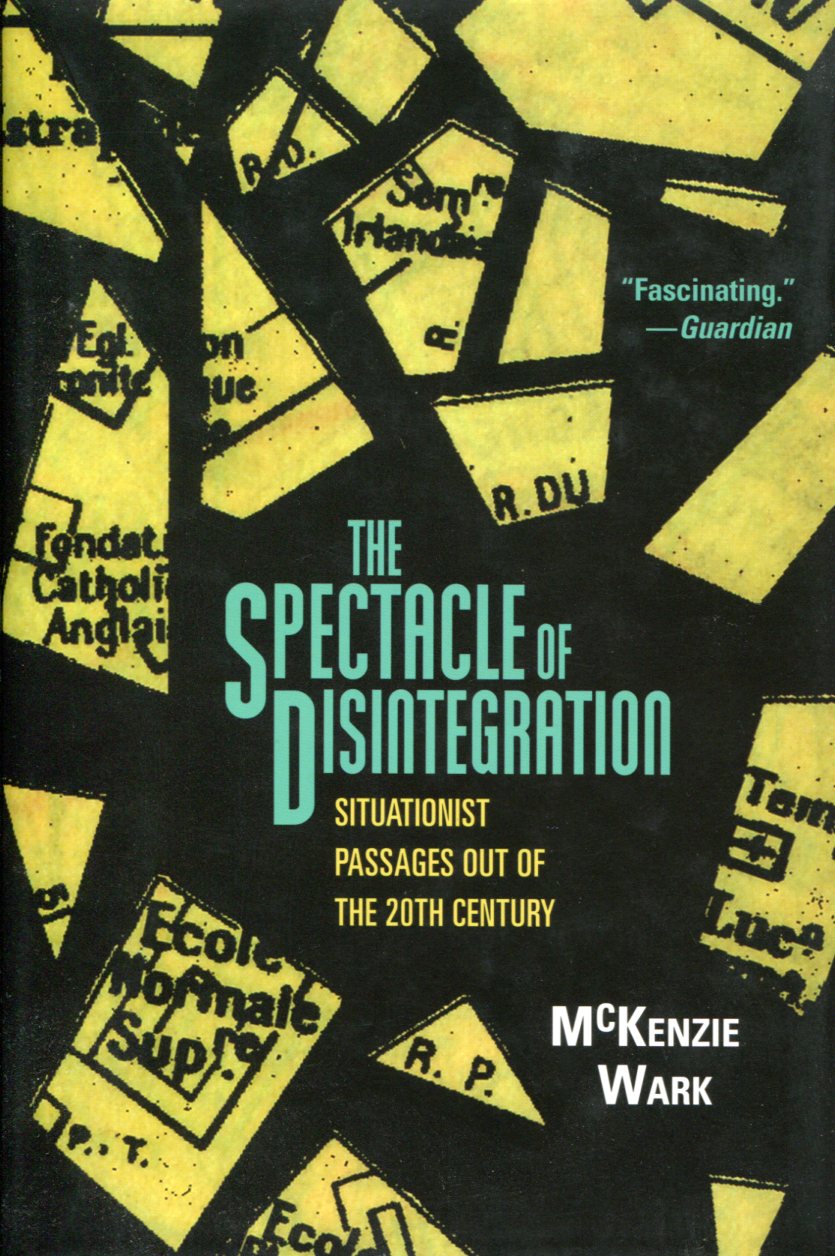
Following his acclaimed history of the Situationist International up until the late sixties, The Beach Beneath the Street, McKenzie Wark returns with a companion volume which puts the late work of the Situationists in a broader and deeper context, charting their contemporary relevance and their deep critique of modernity. Wark builds on their work to map the historical stages of the society of the spectacle, from the diffuse to the integrated to what he calls the disintegrating spectacle. The Spectacle of Disintegration takes the reader through the critique of political aesthetics of former Situationist T.J. Clark, the Fourierist utopia of Raoul Vaneigem, Rene Vienet's earthy situationist cinema, Gianfranco Sangunetti's pranking of the Italian ruling class, Alice-Becker Ho's account of the anonymous language of the Romany, Guy Debord's late films and his surprising work as a game designer. At once an extraordinary counter history of radical praxis and a call to arms in the age of financial crisis and the resurgence of the streets, The Spectacle of Disintegration recalls the hidden journeys taken in the attempt to leave the twentieth century, and plots an exit to the twenty first.
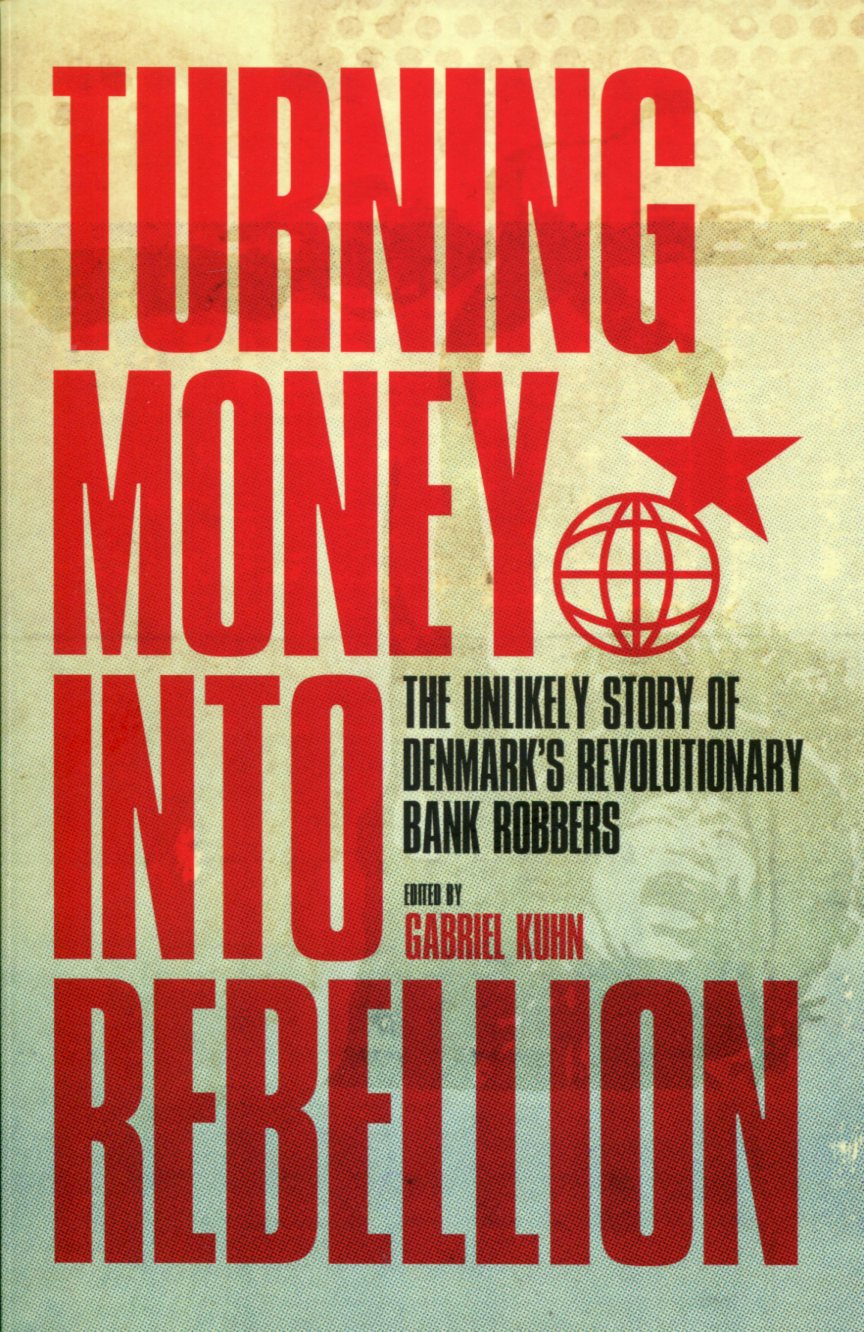
Blekingegade is a quiet Copenhagen street. It is also where, in May 1989, the police discovered an apartment that had served Denmark’s most notorious twentieth-century bank robbers as a hideaway for years. The Blekingegade Group members belonged to a communist organization and lived modest lives in the Danish capital. Over a period of almost two decades, they sent millions of dollars acquired in spectacular heists to Third World liberation movements, in particular the Popular Front for the Liberation of Palestine (PFLP). In May 1991, seven of them were convicted and went to prison. The story of the Blekingegade Group is one of the most puzzling and captivating chapters from the European anti-imperialist milieu of the 1970s and ’80s. Turning Money into Rebellion: The Unlikely Story of Denmark’s Revolutionary Bank Robbers is the first-ever account of the story in English, covering a fascinating journey from anti-war demonstrations in the late 1960s via travels to Middle Eastern capitals and African refugee camps to the group’s fateful last robbery that earned them a record haul and left a police officer dead. The book includes historical documents, illustrations, and an exclusive interview with Torkil Lauesen and Jan Weimann, two of the group’s longest-standing members. It is a compelling tale of turning radical theory into action and concerns analysis and strategy as much as morality and political practice. Perhaps most importantly, it revolves around the cardinal question of revolutionary politics: What to do, and how to do it? Praise: “This book is a fascinating and bracing account of how a group of communists in Denmark sought to aid the peoples of the Third World in their struggles against imperialism and the dire poverty that comes with it. The book contains many valuable lessons as to the practicalities of effective international solidarity, but just as importantly, it is a testament to the intellectual courage of the Blekingegade Group.“ —Zak Cope, author of Dimensions of Prejudice: Towards a Political Economy of Bigotry “The story of how some pro-Palestinian activists become Denmark’s most successful bank robbers is more exciting than any thriller.“ —Åsa Linderborg, Aftonbladet “I am convinced that they never even took a nickel for themselves.“ —Jørn Moos, chief investigator in the Blekingegade Case About Gabriel Kuhn: Gabriel Kuhn is a Swedish-based author and translator. Among his publications with PM Press are Sober Living for the Revolution: Hardcore Punk, Straight Edge, and Radical Politics (2010) and All Power to the Councils! A Documentary History of the German Revolution of 1918-1919 (2012). Product Details: Editor: Gabriel Kuhn Publisher: PM Press/KersplebedebISBN: 978-1-60486-316-1Published: 08/14Format: Paperback Size: 9 x 6Page Count: 240 Subjects: History-Europe/Politics-Activism
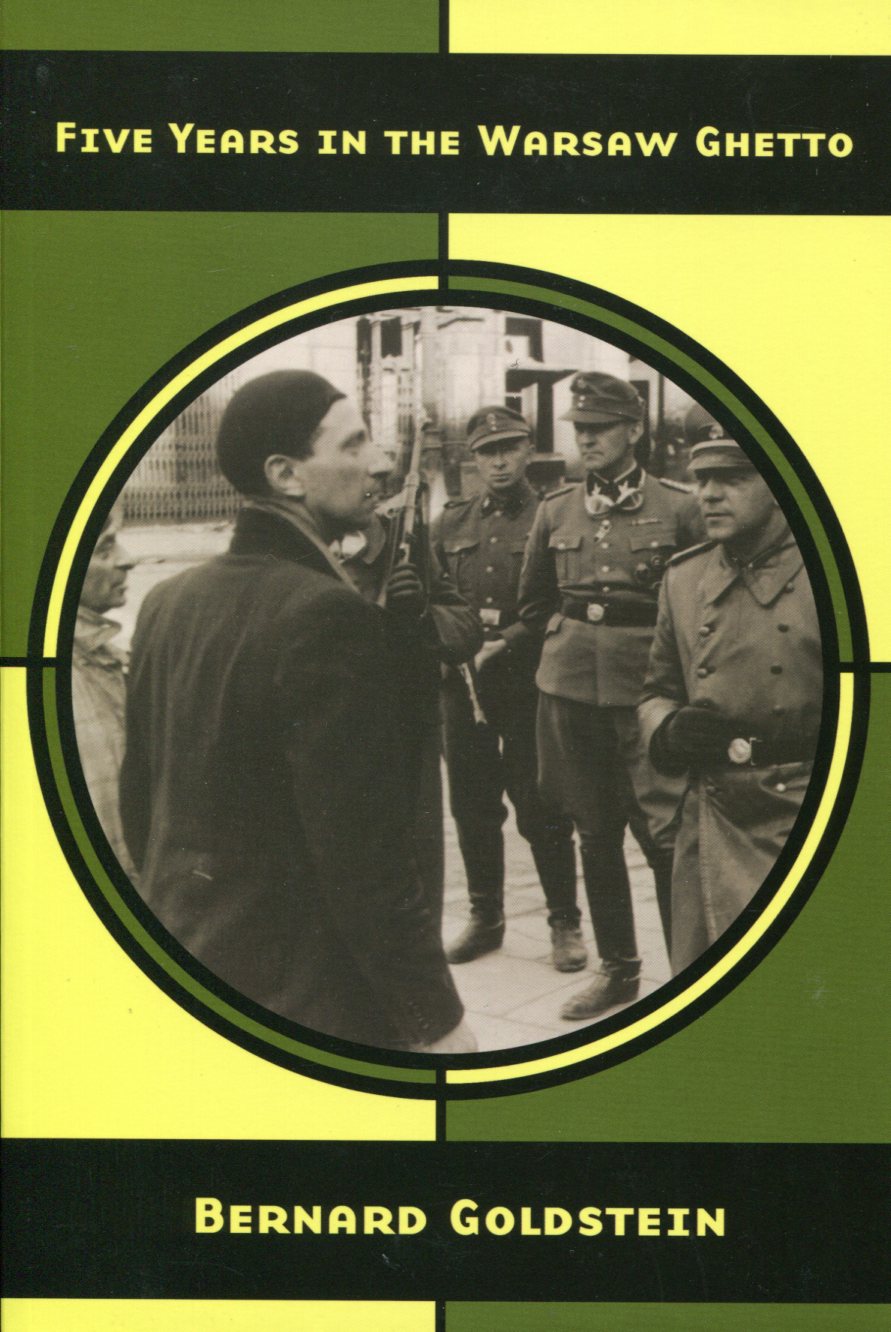
- Spine of the book is paled out from sunlight, otherwise new shop copy - This book, rescued from obscurity by the Nabat division of AK Press, is most worthy of attention and reading. It relates the true story of Goldstein, a dedicated Socialist revolutionist and founding member of the Jewish Bund and his perilous existance in pre-war and wartime Poland including life in the hellish Warsaw Ghetto and the struggle of the occupants to survive. Born in a small town outside of Warsaw in 1889, Bernard Goldstein joined the Jewish labor organization, the Bund, at the age of 16 and dedicated his life to organizing workers and resisting tyranny. Goldstein spent time in prisons from Warsaw to Siberia, took part in the Russian Revolution, and was a respected organizer within the vibrant labor movement in independent Poland. In 1939, with the Nazi invasion of Poland and establishment of the Jewish Ghetto, Goldstein and the Bund went underground—organizing housing, food, and clothing within the ghetto; communicating with the West for support; and developing a secret armed force. Smuggled out of the ghetto just before the Jewish militia's heroic last stand, Goldstein assisted in procuring guns to aid those within the ghetto's walls and aided in the fight to free Warsaw. After the liberation of Poland, Goldstein emigrated to America, where he penned this account of his five and a half years within the Warsaw ghetto and his brave comrades who resisted to the end. His surprisingly modest and frank depiction of a community under siege at a time when the world chose not to intervene is enlightening, devastating, and ultimately inspiring. "His active leadership before the war and his position in the Jewish underground during it qualify him as the chronicler of the last hours of Warsaw's Jews. Out of the tortured memories of those five and a half years, he has brought forth the picture with all its shadings—the good with the bad, the cowardly with the heroic, the disgraceful with the glorious. This is the valedictory, his final service to the Jews of Warsaw." —Leonard Shatzkin, translator and editor It took me a few days to write this review after I finished "Five Years In The Warsaw Ghetto" by Bernard Goldstein. In a day where there's much wrong with our world, you can't help but be depressed when reading of people in the past that's ideals were utterly crushed by the might of state power. Goldstein was a Jewish socialist organizer in the trade unions of Warsaw, and lost his entire community to the Nazi plan of aus rotten of the Polish Jews. Its story, a re-release of a memoir put out in the 1950s when the Holocaust was fresh in the world's mind, leaves you with three things. First, it is a tragedy, one of where Bernard Goldstein spent his entire life fighting for justice, as a socialist activist and organizer amongst Polish workers and Jews; he actively fought fascism from rising in Poland, but was nearly powerless to stop as the tanks rolled into Warsaw. Throughout the five years, he watched as half a million Jews were reduced to a little more than 70,000, and as his beloved Warsaw was utterly destroyed by the Nazis, and than the Socialist resister survivors were rounded up and either imprisoned or executed by the Soviets. Second, it is a story of hope. Throughout the entire occupation, Goldstein never rested nor never gave up; reminding the reader of the old phrase "Better to die on your feet than to live on your knees." When the Nazis set up the Ghetto, he urged, from the underground press, to resist it and not to trust the Jewish collaborators whom the Gestapo put into power to rule over the ghetto. When deportations started, his organization tried to manufacture fake documents to as many people as possible marked for liquidation as good workers. When it became clear the Nazis were planning to kill everyone, Goldstein helped organize the uprising which nearly succeeded in defeating the Nazis except for a dearth of supplies. Escaping the Ghetto, Goldstein joins the Polish resistance which stages a second city-wide uprising two years later, which only failed because the approaching Soviet army refused to help it, since Stalin wanted no rivals in his puppet government. Third, it is a story of courage to fight for what is right. Throughout the story, Goldstein remains resolute that the Nazis would be defeated eventually, and used all of his cunning, strength, and organizing skill to achieve it. People who compromised themselves in order to survive in this story usually did not, such as Jewish Gestapo agents, who became such to protect themselves from death camps, but instead were assassinated by vengeful Jews when the uprisings erupted. Goldstein, the biggest rebel of them all, survives the holocaust of his people and his city, though he has to flee when the Soviets begin arresting the radicals of the nation. Goldstein's message should be for us today, in these difficult times, to never give up, and never stand down, no matter how mighty your foes are nor how much the odds are stacked against you and what you hold dear. Nothing, not the state, nor the worst of tyrants and human hatred, can crush the thoughts and hope for a better world. If Goldstein can survive it, so can we.

DIE PARTEI was a one-off project featuring musician Tom Dokoupil (Siluetes 61, The Wirtschaftswunder)and the artist and musician Walter Dahn (Die Hornissen). The pair met up for a single weekend in 1981 to record "La Freiheit des Geistes" ("La Freedom of the Spirit"), a fantastic instrumental post-punk synthpop album. At times its forward thrust sounds cold, restless and hectic, at other moments it comes across as pleasantly winsome and melodic, plangent even. Film quotes and sporadic bursts of instruments (in particular Dokoupil's clean Vox guitar and a saxophone) flavour the music. "La Freiheit des Geistes" is an album of opposites in a state of mutual attraction, just as Dokoupil and Dahn intended.
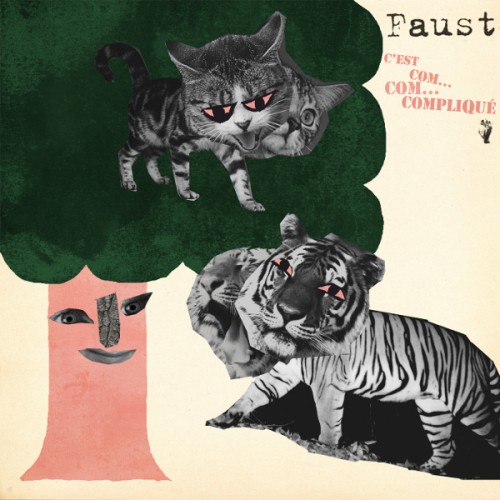
Bureau B proudly presents: a brand new album of the krautrock institution, revered worldwide as pioneers of avant-garde rock music. Hypnotic, dadaistic, powerful, gentle, melodic, earthy, etheral. This is the sound of Faust.Tracklisting 1. kundalini tremolos 2. accroché à tes lèvres 3. ce chemin est le bon 4. stimmen 5. petits sons appétissants 6. bonjour gioacchino 7. en veux-tu des effets, en voilà 8. lass mich, version originale 9. c'est com...com...compliqué

""11 heldengesänge und 3 gedichte" was privately published by anton bruhin in 1977 as a luxury 2x10" box. this unique and imaginistic sound poetry work has been issued on lp by alga marghen for the vocson series and is now available for distribution for the first time ever. it's a sound poem which takes us into a medieval world of minstrels and errant knights, a phantasmagoria in text and sound. it is also a modern document of the not-yet-existing electronic sampling art in the 1970s. anton bruhin wrote: "in the heldengesänge i conceived each hero speaking a different invented dialect and coming from a different fictional geographical region. i also wanted to give each hero his own music as a companion. i have used various musical materials and played a variety of instruments, but also taken parts from existing musics and manipulated them". like an anthropologist anton bruhin presents this fictional culture inventing its language and music as well as drawing its objects. a hat, a cup, an arm, a flag, a wurst. everyday-life artifacts from an ancient time catalogued with scientific precision. in "11 heldengesänge und 3 gedichte", a masterpiece by anton bruhin, all is artificial and nothing is real. exactly like in our contemporary world. edition limited to 350 copies, including a large lp-size folded insert with the full heldengesänge and gedichte texts as well as a selection of original graphic works." (label info)

